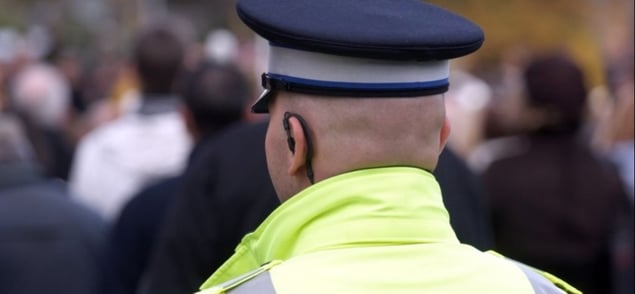Next month, Modernising Criminal Justice features an insightful, live panel discussion to explore the new digital ambition for UK policing in the era of a pandemic, led by Assistant Commissioner Nick Ephgrave QPM, Front Line Policing HQ & NPCC National Lead Criminal Justice, Metropolitan Police Service.
Ahead of the event, the GovNet team sat down with the Assistant Commissioner to discuss the pandemic and the subsequent challenges that frontline police face as we come out of another lockdown.
Speaking very honestly on the topic, AC Ephgrave brought up many challenges that are prevalent across the UK, not just in his work in London with the Met Police.
Cities waking up
As our cities and towns start to come back to life post-pandemic, so too do the typical problems associated with them such as the night-time economy, use of alcohol in public places and anti-social behaviour.
"The challenge for us, not just in London but everywhere that you have a vibrant environment that is slowly coming back to life, is: How do we continue to suppress criminality whilst allowing towns and cities to flourish again, particularly into the evening and particularly around the sale of our alcohol."
Equally, violence against women, girls and vulnerable individuals has been very much in the public eye since the murder of Sarah Everard in March 2021, and is another element of coming out of lockdown will need addressing as police forces start looking at innovative ways they can be more visible.
Evolving with the times
On the opposite side of the coin to night-time activity, are the return of mass gatherings, large sporting events and also protest activity. All of these need staffing in order to police crowd control. While this in itself doesn't pose a significant challenge, the ever evolving way in which public demonstrations take place does:
"As we saw with Extinction Rebellion two years ago, there are some very different challenges around the changing nature of protests and how we apply the laws from 1986, when the Public Order Act was last drafted, to the tactics and the type of protests we see now."
Hidden crimes
The scale of some challenges won't become apparent for a few more months and require close monitoring. In this case, AC Ephgrave was specifically referring to child abuse and domestic abuse.
"Child abuse is often disclosed to teachers or trusted adults in an education establishment, so the fact that children have not had access to those people, with schools being out of operation for so long, means they may well be a proportion of crime that we are yet unaware of."
Internal challenges
The pandemic has not only had a major impact on crime, but also on police staff and their wellbeing. There has been immense pressure to enforce rapidly changing and very complex laws, which often changed daily and had to be implemented overnight.
On this, AC Ephgrave said, "I think [our staff] have risen to the challenge magnificently. They have done really well through this Covid pandemic, but the outcome of that is that they’re tired. They haven’t had their holidays, or the rest days, we’ve had to ask them to step-up and do more and I think there’s going to be a price to pay for that in terms of burnout and big chunks of leave that need to be taken... so that presents a logistical challenge and a well-being challenge for our organisation, whichever force you’re in."
Police legitimacy
Multiple factors have enhanced the need for forces across the UK to improve public trust and victim confidence in the police. In particular, AC Ephgrave mentioned the Black Lives Matter movement in May 2020 and statistics around the areas the Covid tickets have been enforced:
"When you take people's concerns with what looks like disproportionality - for example stop and searching young black men - and you overlay that on Covid and where Covid tickets have been enforced and who’s been receiving those, it’s been easy for people to create a certain negative narrative, which undermines the legitimacy of policing and sees the police service as institutionally racist.
We are working very hard to explain why we’ve done what we’ve had to do, and the causes of some of this apparent disproportionality. We are also accepting that our practice does need to improve and we need to be more transparent, as well as constantly monitoring the way we interact with our communities."
All of the above have been echoed in our interviews with other members of the police force across the UK; suggesting that although the challenges faced are varied and complex, by sharing innovative solutions and continuing to collaborate cross-organisation, it is possible to overcome them together.

You can read the interview in full in the latest issue of Police Professional magazine, or join the panel with Assistant Commissioner Nick Ephgrave live at Modernising Criminal Justice 2021 on 23rd June. To view the full agenda or to secure your ticket, head to the event website: www.modernising-justice.co.uk
Jessica Kimbell, GovNet

